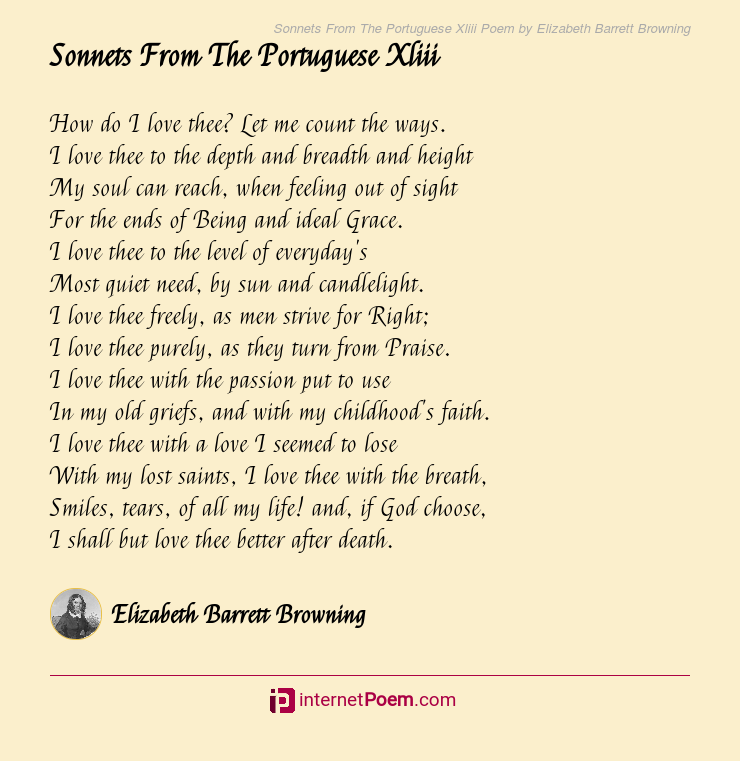
Guess now who holds thee!- Death, I said, But, there, Straightway I was ’ware,īehind me, and drew me backward by the hair Īnd a voice said in mastery, while I strove,.

Those of my own life, who by turns had flungĪ shadow across me. The sweet, sad years, the melancholy years, I saw, in gradual vision through my tears, To bear a gift for mortals, old or young:Īnd, as I mused it in his antique tongue, Of the sweet years, the dear and wished-for years, Browning suffered from numerous illnesses throughout her life, eventually succumbing in Florence at the age of 55. She is most famous for her Sonnets from the Portuguese, a collection of 44 love poems published in 1850, and Aurora Leigh, an 1856 epic poem described by leading Victorian critic John Ruskin as the greatest long poem written in the nineteenth century. Browning went on to be recognized as one of the foremost poets of early Victorian England, influencing such writers as Edgar Allen Poe and Emily Dickinson.

She began writing poems at a young age, finding success with the 1844 publication of Poems. Her marriage to the prominent Victorian poet Robert Browning caused the final break between Browning and her family, after which she moved to Italy and lived there with Robert for the rest of her life. The daughter of a wealthy family-her father made his fortune as a slave owner in Jamaica, while her mother’s family owned and operated sugar plantations, mills, and ships-Browning eventually became an abolitionist and advocate for child labor laws. Elizabeth Barrett Browning (1806-1861) was an English poet.


 0 kommentar(er)
0 kommentar(er)
